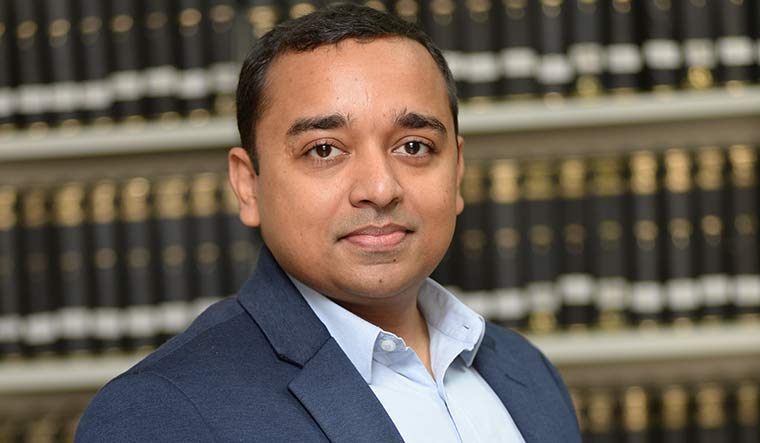1 - DATA SCIENTIST/ DATA ANALYST
Every business generates large volumes of data. For enterprises to succeed in today’s world, they need to know how to analyse data and find patterns in it. These patterns help predict future outcomes, says John Kurien, co-founder and CEO of Corz.io, a start-up focusing on cloud cost optimisation and management for enterprises.
According to him, there are two parts to this job. One is that of a data scientist in the purest sense of the term. These are specialised people who create “data models” or “algorithms” that determine how to identify patterns and predict future outcomes. The second part is that of a data science engineer. They are engineers who are well-versed with the technology behind big data and machine learning implementations. The second set implements the algorithms derived by data scientists.
Ajoy Raj, senior data scientist and co-founder of FieldNotes (PlanQube in India), a customer engagement platform that uses AI to manage leads and contacts, says that the demand for data scientists has exploded because now we have the tools to make it a viable business.
Tanmai Choudhary, 22, who joined the home improvement company Lowe’s as a data analyst in August, says that what excites him about the job is the kind of possibilities it offers. “Job opportunities in data analysis are huge,” he says. “You will never have a problem switching jobs if you are in this field.”
2 - DIGITAL MARKETING SPECIALIST
According to Abhishek Kumar, co-founder of the digital marketing training programme, DigiGrad, by 2025, there is expected to be over 30 lakh jobs in digital marketing alone. “If you are looking to start a career that is in demand and future-ready, the answer is clear: it is digital marketing,” he says. A digital marketing specialist is responsible for organising online campaigns, performing consumer research and selling a product using social media, Web analytics, email marketing and search engine optimisation.
“My expertise is in creative ideation, and I believe creativity and my passion for marketing are what makes a career in digital marketing suited for me,” says Supraja Ashok, 20, who completed her BCom with a specialisation in marketing from M.O.P. Vaishnav College, Chennai. She is currently working with the digital marketing agency, Social Beat. She says that digital marketing is challenging and exciting because there are so many verticals to it, whether it is content creation, targeting clients through digital tools or working with a multitude of brands.
Consumer centricity is the key to digital marketing, says a digital marketing specialist with a multinational who did not want to be named. Consumers might be involved with one thing today and bored with it tomorrow. There is huge scope to cater to their needs. Digital marketing and data are changing the world. According to her, there will be no chief marketing or sales officers in future. These roles will be integrated into that of a chief growth officer, who will be responsible to bring about disruption which, in future, is going to be instrumental.
3 - CHIEF HR OFFICER
In the post-Covid scenario, the role and scope of HR officers have increased multiple-fold. It is important for HR officers to know how to reorganise policies and processes to adapt to the new reality. “The pandemic has transformed HR and made companies go through a steep learning curve,” says Shantanu Jha, senior vice president and HR Lead, Global Delivery, CDO and India HR, Cognizant. “It has put HR at the forefront of crisis management. At Cognizant, too, we have invested substantial effort to facilitate a rapid shift to seamless remote working and ensure business continuity. We have moulded robust contingency plans and expanded virtual tools to transition to a fully remote workplace where employees had the necessary infrastructure to work and deliver.”
He says that HR leaders should be able to challenge the business and institutionalise core people processes. According to him, some of the skill-sets one needs to do well in HR are:
● Solution orientation
● Crisis management and creative problem-solving
● Data, analytics and technology expertise
● Business acumen and understanding of the digital technology market, especially virtual and augmented reality
● Design thinking with empathy and emotional intelligence
● Virtual communication
4 - FULL-STACK ENGINEER
A full-stack engineer has expertise on the front-end (interface) as well as the back-end (logic and data) of an application. LinkedIn describes it as the Swiss army knife of tech roles. The position has become increasingly important over the years, says a full-stack engineer based in Bengaluru. Before the advent of cloud, a single programming language was used for both front-end and back-end to build monolithic apps. Then, user experience was not as important as functionality. Now, it has become immensely important. So, front-end and back-end roles have gotten segregated. With new-age start-ups, the front-end guys are responsible for the user experience and the data comes from the back-end. In this scenario, someone who is familiar with both front-end and back-end technology is of tremendous value.
Also, earlier, if a team was responsible for developing a software in six months, now they have to do it in two weeks. In something called agile methodology, decision making has become much more rapid. Therefore, the importance of full-stack engineers has increased multiple-fold.
While core technology companies may still prefer engineers with in-depth knowledge in a specific technology, start-ups and consulting firms want engineers who know a little bit of everything.
5 - BLOCKCHAIN DEVELOPER
Edureka defines a blockchain developer as one responsible for developing and optimising blockchain protocols, crafting the architecture of blockchain systems, developing smart contracts and web apps using blockchain technology. According to the NASSCOM-Avasant Blockchain Report 2019, globally, blockchain revenue is concentrated in three key industries: banking, manufacturing and financial services. In India, BFSI (banking, financial services and insurance) is the leading industry using blockchain, but other industries like health care, retail and manufacturing are catching up. “The Indian blockchain ecosystem is at a vibrant and exciting stage—the government (in its dual role as consumer and regulator) enterprises, service providers, start-ups, academia and investors—are making significant efforts to evolve and enhance the blockchain value proposition,” stated the report.
Demand for blockchain is growing at over 40 per cent per quarter, it says. There is a shortage of skilled blockchain developers, with only 45,000 to 60,000 of them being industry-ready globally. There has also been a rapid growth in blockchain start-ups, with more than 3,100 of them emerging since 2009, focusing on areas like infrastructure, financial services, data analytics, mining, social network and content management. A blockchain developer should have a thorough knowledge of blockchain, its application and architecture, data structures, cryptography and web development.
6 - LEAD GENERATION SPECIALIST
A lead generation specialist is responsible for identifying and attracting potential clients to an organisation. It was one of the jobs listed in India’s Top Emerging Jobs 2020 report on LinkedIn. “Online lead generation includes everything from search engine prominence to social media and email marketing,” stated the report. “A lead generation specialist will weigh the best approach and deliver the best value to the business.”
The responsibilities of a lead generation specialist include handling enquiries from clients, ensuring business goals are met and comprehending the products and services of a company. Some of the skill-sets one requires are an understanding of key communication techniques, strong strategy-building and verbal skills and an ability to find digital solutions to complex problems. Good problem solving and critical thinking skills, too, will come in handy.
According to LinkedIn, lead generation, which involves both marketing and sales, now ranks among the highest priorities for many organisations. “The higher the quality of the leads that are identified, the more efficiently a good sales team can convert them into paying customers,” stated the report.
7 - VIRTUAL TRAINER
Online learning has witnessed an unprecedented boom since the pandemic. The online education market is expected to grow by $14.33 billion from 2020 to 2024, as per a market research report by Technavio. In such a scenario, the demand for virtual trainers has increased in leaps and bounds.
Virtual trainers need to constantly keep themselves updated about the latest technology innovations in education, says Dr Indira V.M.D, an educator with the online learning platform, Lido. She says that the number of virtual trainers has gone up post pandemic and schools are witnessing a higher attrition rate of teachers because many of them are moving online.
There is also a higher standard for virtual trainers set by several ed-tech companies. “All our teachers are rigorously screened with less than 1 per cent acceptance rates,” says Aamit Khanna, who heads corporate communications at Lido. Teaching is highly personalised with advanced algorithms matching the child to the most suitable tutor. It is no longer static, with child engagement levels and retention metrics giving teachers real-time feedback on their performance.
8 - SPECIALIST IN DATA PRIVACY LAW
The need for privacy specialists has increased greatly in a short span of time, even though data privacy and protection laws in the country are at a nascent stage, says Supratim Chakraborty, partner, Khaitan & Co, and a specialist in data privacy law. Post Covid-19, advice relating to aspects of data privacy and new-age technologies has seen an exponential rise as there has been a major shift in most organisations to the digital way of transacting business.
According to him, the job involves training members of an organisation on planning and execution of privacy programmes; understanding products, services and organisational plans; providing inputs to ensure compliance with data privacy and protection requirements; and helping organisations respond to regulatory queries. “It is an exciting and challenging role,” he says. “One has to be abreast of domestic and international developments. An understanding of foreign laws from jurisdictions having mature privacy laws plays a key role in honing the skills of a specialist.”
“With the Personal Data Protection Bill 2019 and several other legislative developments in the works, there will be a massive change in the way organisations will need to ensure compliance with the new legal regime,” says Chakraborty. “This will undoubtedly create a great demand both in law firms as well as companies which will translate into a mammoth requirement for specialists in this field. In fact, many organisations are already staffing people to meet these demands. We also observe a great deal of re-skilling happening in order to meet the present and upcoming requirements.”
9 - HEALTH CARE MANAGER
The health care sector is on the brink of an explosive growth. One of its pioneering concepts is digital health, including testing, diagnostics, health cards and telemedicine. As all the medical records and diagnostic results are becoming digitised, hospitals need administrators to handle the data. In this scenario, the role of a health care manager, who can handle medico-legal concerns, administrative responsibilities and doctors’ accessibility, becomes exceedingly important.
“Health care administrators are responsible for the [smooth functioning] of medical programmes, optimising costs, fulfilling doctor requirements, handling public relations and patient needs,” says Ambili Vijayaraghavan, COO, Aster Medcity. “For example, are patients discharged quickly without having to wait? It involves a lot of interacting with patients, doctors and team members to plan how to take the hospital to the next level.”
According to her, hospital administration has become more streamlined. Over the last 15 years, many institutes like IIHMR and Tata Institute of Social Science (TISS) have started offering specialised courses in health care
management, she says.
Vijayaraghavan says that post Covid-19, there has been some changes in the management of process flows. Stricter infection control measures and proper zoning of the hospital have been instituted. Many new protocols have come into force. “We also need to be trained in-house to know how we need to change processes,” she says. As Dr T.R. John, chief of medical services at Aster Medcity, says: “The role of a health care manager is a relatively new concept in India unlike in the west. Earlier, we used to have doctor-managers. Now, it has become more professional. It is definitely an up-and-coming field.”
10 - AGRONOMIST
An agronomist is responsible for cultivating crops, protecting plants and ensuring a higher yield. Talking about how the pandemic will create new opportunities in this field, Subramanyam Sreenivasaiah, CEO, Ascent Consulting Services, says, “Globalisation, until now, meant procuring any commodity from anywhere in the globe and cost seemed to be the only driver and not the supply chain. The new normal will bring in challenges for governments to keep adequate food grains and other associated commodities. Production needs to be doubled globally to meet hunger needs and would get further complicated when supply chain restrictions are in place, more so when the goods are perishable.”
There is going to be a high demand for manpower in this field because agriculture is still the main occupation of a majority of the population and we need more quantities of food for internal consumption, says V.R. Kumar, editor-in-chief of the agricultural magazine, Agro India. “Agricultural production is now happening in a more scientific manner with students trained by agricultural colleges and research institutes under the Indian Council of Agricultural Research (ICAR), the coordinating body,” he says.
“I want to become an entrepreneur in the farming field ultimately, but right now, I am looking to get a job, maybe as a lab analyst, to earn money,” says Shweta K., 23, who is doing her MSc in Soil Science from the University of Agricultural Sciences, Dharwad, Karnataka. Anitha K.V., an agriculture student who is doing her PhD on the impact of different levels of the NPK fertiliser on brown-top millet, says that it has always been her dream to pursue a research job in agriculture. “I used to help my father with sowing and transplanting ragi and paddy, and weeding and harvesting them,” she says. During the pandemic, though, she was in a quandary. “I wondered whether I should give up my PhD and try for a job, because I was scared I would not get one.”





